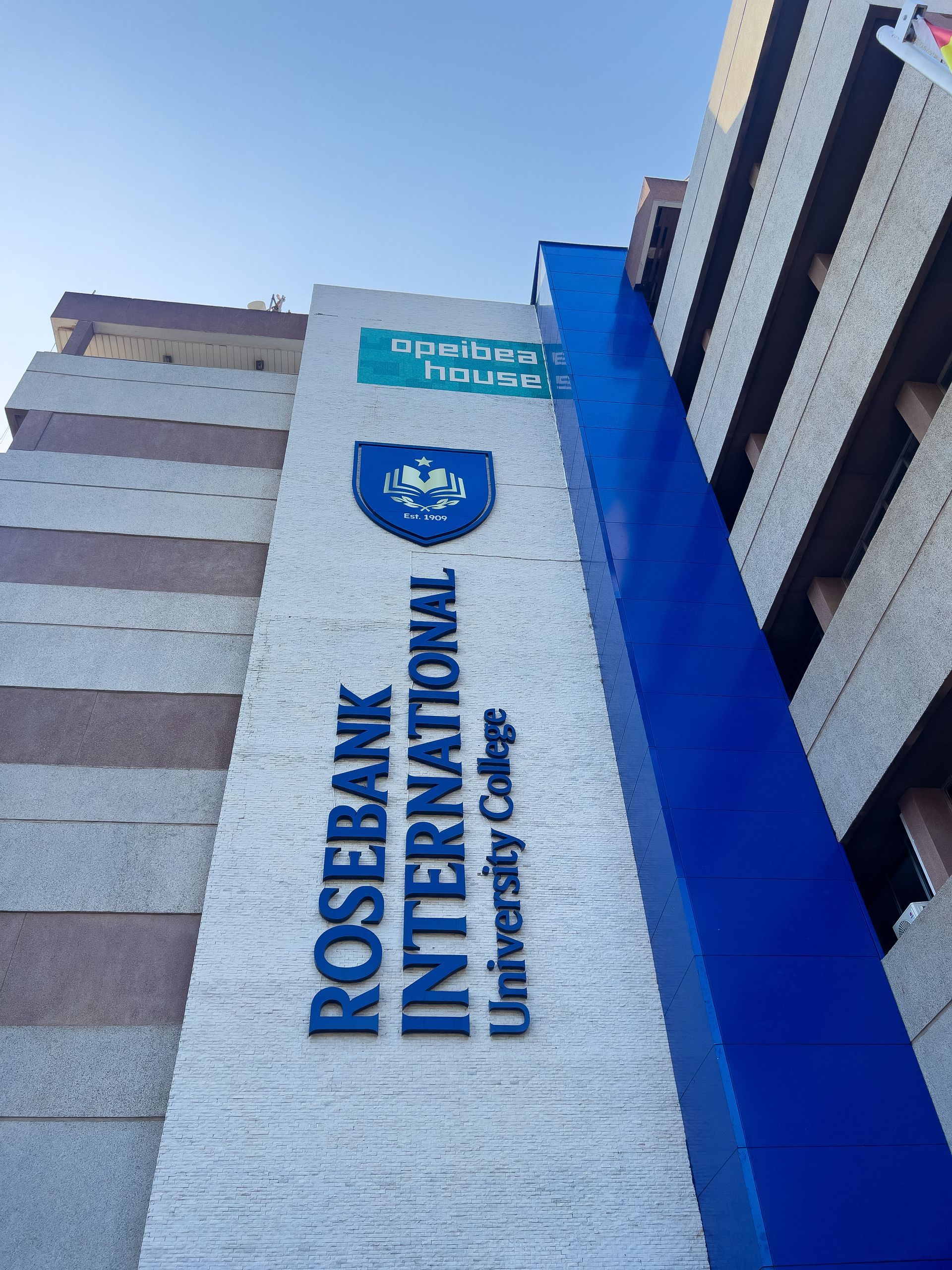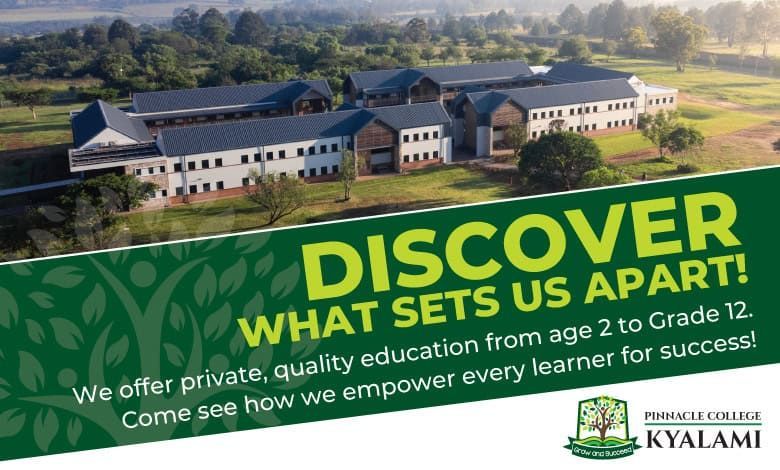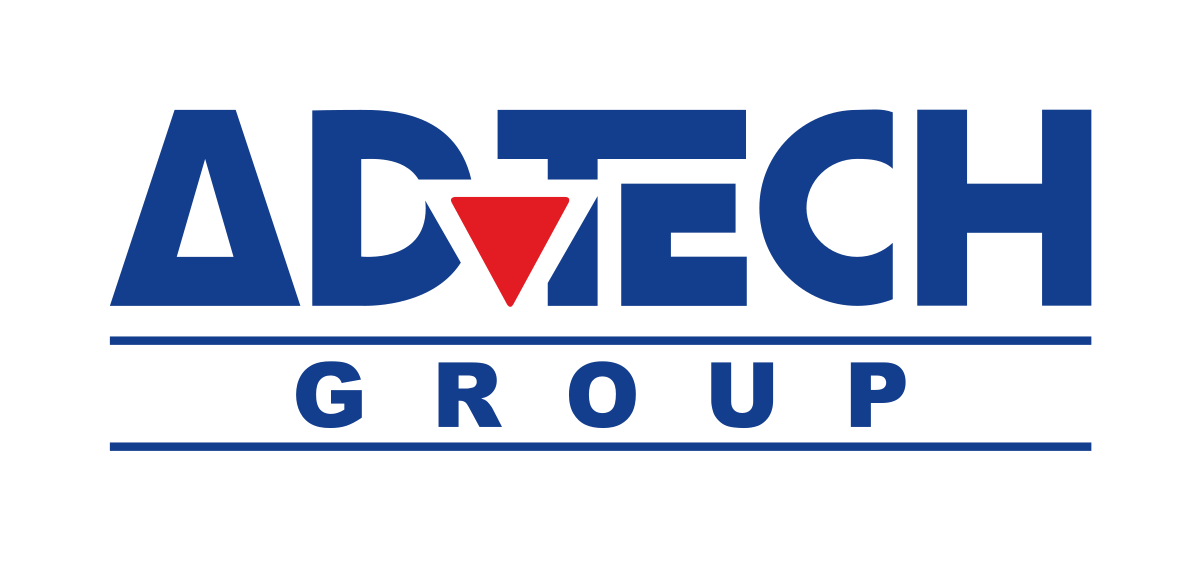Grade 12 Results: Don’t settle for less if you didn’t perform at your best
As the Department of Basic Education prepares to release the Matric results of 2020 next week, many young people are nervously awaiting results, either knowing that they didn’t perform to the best of their ability, or with no idea of what to expect and what they would do if they didn’t do well. It is however important to know that there are various options available if things didn’t go as planned, and not worry about what came before, but rather focus on what actions can be taken going forward, an education expert says.
“At the beginning of each year, we set ourselves goals and enthusiastically make New Year’s resolutions. For a significant number of young people, this also means embarking on a new adventure, transitioning from the structured life of school to the exciting world of adulthood,” says Dr Jacques Mostert, Academic Manager for ADvTECH’s Abbotts College.
“This rite of passage usually goes along with making plans for further education and training. But what happens if things don’t go according to plan, and instead of going on to further study, you are faced with the reality that your Matric results were not good enough to start out on this new journey just yet?”
Mostert says the enthusiasm of looking towards a future filled with potential and promise can sometimes be dampened by Grade 12 results that are not as good as what were expected.
“Usually this results in a reshuffling of plans, a rush to come up with Plan B, or desperate calls to schools to enquire about re-marks or a second attempt to writing the exam. But these aren’t always the best approaches available and settling for second best need not be the way forward.”
Before making instant decisions about what to do if things didn’t go as planned, there are a few things that parents and young adults must consider, says Mostert: Embracing the power of “yet”; making a mind-set change from feeling helpless towards taking control, and embracing a growth mindset geared towards the future.
Embrace the power of “yet”
Dwelling on the past, and constantly going over the ‘what ifs’, can be debilitating, says Mostert.
“Notwithstanding the cliché of letting the past remain in the past, for a young adult with high expectations experiencing disappointment, letting bygones be bygones isn’t that easy. Accepting that a goal may not have been reached yet, and embracing the power of possibility, young people can develop a resilience that will inevitably become paramount in their personal and professional development.”
From hopeless to taking back control
The anxiety that goes hand in hand with making life-altering decisions without considering all the options is a considerable contributing factor of a sense of helplessness both parents and young adults experience, notes Mostert.
“Deciding to change course and settle for less should not be an option. We tend to believe that in the modern world of the fourth industrial revolution and omnipresent social media, there exists a set timeline to reach arbitrary milestones. The reality is that there is no set end date for reaching any goal. Young people should look past peer pressure, and take action to get back on track towards fulfilling their goals.”
Developing a growth mindset
Mostert says that no matter how attractive moving out of the house, embracing independence and forging a new future may seem, there are two inevitabilities of life, other than paying tax, every young adult must face.
The first is that change is ubiquitous and the second is that getting better never stops. Learning, especially in an ever-shrinking global market, never stops.
“Disruption isn’t always as negative as we may think at first. Taking a moment to consider all the options available and considering an alternative that at first did not look like an option often allows a person to embark on a pathway towards success.”
Mostert says apart from the usual avenues of rewrites and remarks young people might consider when receiving less than stellar results, they also have the option of redoing Matric or even just improving their subjects, to ensure they can still pursue their dreams, albeit a little bit later than initially planned.
“At Abbotts College High School, students can enrol part-time to upgrade their subjects, for instance. This approach provides students the chance to increase their marks and that enables them to meet their tertiary Admission Point Score (APS) in order to be accepted to study in the field of their dreams.”
He says while many students may not be keen to return to a school setting, institutions such as Abbotts College provide a different kind of environment which is more in line with a college campus, because the focus is on academic improvement, not rules and uniforms.
“We believe that every student is able to develop and achieve academic success, wherever it is that they start from. Improving subjects or redoing Matric in an environment that treats you like a young adult while still following a structured and organised routine, enables students to put the disappointment behind them and become increasingly independent as they manage themselves and their learning.
“Last year was an exceptionally difficult one for the Class of 2020, and for those whose results are not yet in a space which allows them to pursue their vision, our message is clear. If you take a little extra time now to invest in starting from a solid foundation, this temporary hurdle will soon be forgotten, as you embark on the path that you intended a few months down the line.”’
ADvTECH Updates

Rosebank International University College (RIUC), the groundbreaking institution launched last year by Africa’s leading private education provider, the ADvTECH Group, today proudly welcomed its inaugural cohort of students. Hundreds of exceptional first-time students, carefully selected from an overwhelming pool of more than one thousand highly competitive applications, have now officially commenced their transformative academic journey at RIUC . This select cohort now embarks on an unparalleled opportunity – one that will equip them with the advanced skills, cutting-edge knowledge, and innovative mindset essential to meet the evolving demands of the global workforce in the Fourth Industrial Revolution and beyond. Dr Linda Meyer, President of Rosebank International University College, and MD at The IIE’s Rosebank College and Waterfall School of Business (WSB), said: “Today marks an historic step as we welcome our pioneering inaugural cohort.” “Backed by ADvTECH’s pan-African vision, our accreditations, global partnerships, and GETFund support, RIUC is delivering inclusive, innovative education that prepares students for success in the Fourth Industrial Revolution and beyond, while rooting excellence in African leadership.” “As they step onto the modern campus in Accra for the start of the 2026 academic year, these pioneering students are not only beginning their higher education, but also contributing to a significant milestone in Ghana’s tertiary landscape.” “They are positioned to become future leaders, innovators, and global professionals who will drive meaningful progress both locally and internationally,” she added. RIUC offers accredited programmes across its faculties, including high-demand qualifications such as: Bachelor of Computer and Information Sciences Bachelor of Commerce in Supply Chain Management Bachelor of Hospitality Management Bachelor of Computer and Information Sciences in Application Development Bachelor of Information Technology in Business Systems Bachelor of Commerce in Digital Retail Entrepreneurship RIUC is truly positioned as a hub for global learning, boasting partnerships with: Ghana Tertiary Education Commission (GTEC) Capsicum Culinary Studio (endorsing culinary programs with global industry ties) Association of African Universities Golden Key International Honour Society (global network for high-achieving scholars) ADvTECH and Rosebank College South Africa “Our new students can look forward to international exchange programmes, immersive study abroad opportunities, and access to globally recognized qualifications,” Dr Meyer says. With limited remaining space, prospective students for 2026 and beyond are encouraged to register immediately—online at www.riuc.edu.gh/application—registration or by visiting the campus.

Pinnacle College Kyalami is a school intentionally designed for their community, one in which adaptability, digital fluency and human skills matter as much as academic knowledge. Its educational model blends strong academic foundations with innovation, personalisation and holistic development to prepare learners for futures that are still unfolding. A defining feature of the school is the purposeful integration of technology into everyday learning . Classrooms are equipped with modern digital tools that support interactive, blended and inquiry-based learning. From Grade 0, students are introduced to coding, robotics and computational thinking , helping them develop problem-solving skills, logical reasoning and creative confidence with technology, not as an add-on, but as part of the learning culture. In Grades 4 to 6, mathematics is supported by ADvLEARN , an AI-enhanced approach to learning that enables teachers to track learner progress with greater precision and tailor targeted support or extension to individual needs. This is further strengthened by the school’s Individual Education Plan (IEP) framework, ensuring that each learner’s academic, emotional and developmental needs are understood and supported in a structured, intentional way. Pinnacle College Kyalami also offers a boarding environment for up to 100 learners , providing a secure, nurturing and structured setting that extends learning beyond the classroom. Boarding supports independence, leadership and social development, while offering families a balanced blend of care, routine and opportunity. The campus itself is designed as a “playground for the future” , a space where curiosity is encouraged, collaboration is natural and learning is active. Through project-based work, interdisciplinary thinking and experiential opportunities, learners are supported to engage deeply, think critically and apply knowledge meaningfully. Together, these elements create a learning environment that is not only academically sound, but future-focused by design, developing learners who are confident, capable, adaptable and ready to thrive in a world of constant change. Pinnacle Colleges, a member of the ADvTECH Schools Division, is a leading provider of future-focused education from early learning through to high school. Guided by our promise of Focus for Success, we combine academic excellence with innovation to provide structured pathways and modern learning environments. Our mission is to be the leading school brand for students pursuing tertiary education. By integrating data-informed teaching and technology-enhanced learning, we partner with parents to nurture confident, values-driven young people. With a legacy of excellence and a commitment to personal growth, Pinnacle Colleges prepares students to thrive in a rapidly changing world.

Choosing a public university or private higher education institution is one of the most important decisions prospective students will ever make, and also one of the hardest. While hundreds of thousands of students have already been accepted into further study for 2026, many others still have to make the call before the official start of the academic year. For these students, and senior high students who will have to consider their next steps in coming months and years, it is important to look beyond the brochure, an education expert says. “For some, choosing a higher education institution is about a taking the first independent step. For others, it’s about returning to study after years in the workplace, fitting lectures around meetings, assignments around family life, and ambition around reality,” says Nadia Landman, Head of Academic Quality Management Systems at ADvTECH’s Independent Institute of Education. Landman notes that while open days help, and polished brochures showcasing impressive campuses reassure, prospective students should attempt to gain a good understanding of what everyday life will actually look like once the semester starts. WHEN REALITY HITS AND STUDENT SUPPORT BECOMES CRUCIAL The real test of an institution rarely happens in week one. It happens a few weeks in, when deadlines stack up, confidence dips, work pressures increase, and life doesn’t politely pause for assignments. “Every institution talks about student support,” says Landman, “but what matters is whether that support is visible and accessible when students begin to struggle, not only when they’ve already failed.” For parents, that may mean asking how an institution identifies first-year students who are falling behind and what support is then made available. For adult learners, it means asking different but equally practical questions: Who do I contact when work deadlines clash with assessments? How accessible are lecturers outside of office hours? Are sessions recorded and made available should I miss a lecture? Institutions that understand student reality, across ages and stages, can explain clearly how they support learners before pressure becomes a crisis. WHO IS ACTUALLY DOING THE TEACHING? Behind every qualification is a lecturer, or a team of lecturers, responsible for turning content into learning. Qualifications and experience matter. But so does engagement, responsiveness, and an understanding of who is sitting on the other side of the desk or screen. “Adult learners bring professional experience, practical questions, and limited time. Parents want reassurance that lecturers are not only knowledgeable, but attentive and accountable. Strong institutions support their lecturers to teach well, and they take student feedback seriously,” says Landman. WORKING WITH REAL-WORLD REALITIES Few people still believe that a qualification alone guarantees a career. Parents worry about employability and adult students worry about relevance. Both are asking the same underlying question: Will this programme help me adapt to a changing world? “Curricula should not be static documents. They should evolve with industry, technology, and society. Institutions committed to quality review their programmes regularly, involve industry voices, provide work integrated learning opportunities, and assess students in ways that reflect real-world complexity, not just academic theory,” says Landman. “The aim is capability, not just completion.” WHY QUALITY AND GOVERNANCE MATTER Accreditation, assessment moderation, and academic integrity may sound bureaucratic, but they quietly protect the value of the qualification, and the effort invested in earning it. “Quality systems aren’t about red tape,” says Landman. “They exist to ensure fairness, credibility, and consistency, whether you’re studying full-time straight out of school or part-time while working.” Institutions that take quality seriously are open about how these systems work and why they matter. One of the clearest signals is the quality of service of an institution. How quickly are emails answered? Are queries met with empathy or deflection? Is communication clear, honest, and respectful of people’s time? Over time, these everyday interactions reveal whether an institution is designed around systems, or around students with real lives. “Higher education is not a transaction. It’s a commitment – of time, energy, and belief in a better future. Parents may not walk the journey for their children. Adult learners may not have the luxury of starting over if things go wrong. In both cases, the choice of institution matters deeply,” Landman says. “When looking at your options, understand that the strongest institutions are not defined by the loudest claims. They are defined by their willingness to answer difficult questions openly, thoughtfully, and without hesitation. And it is in asking those questions, early, calmly, and with intention, that both parents and adult learners move beyond the brochure and towards a decision that truly supports success.” Note: Recent developments in national higher education policy are helping to bring greater clarity for prospective South African students. The Department of Higher Education and Training’s policy on the recognition of institutional types is designed to ensure that different kinds of higher education institutions are clearly defined, appropriately regulated, and transparent about what they are established to offer. For students and families navigating an increasingly complex higher education landscape, this clarity will support more informed decision-making, helping them choose institutions that are aligned with their academic goals, life circumstances, and preferred mode of study, rather than relying on assumptions or labels. Policy implementation can only proceed once regulations are published.

JSE-listed ADvTECH is celebrating another year of outstanding academic performance following the release of the 2025 IEB Matric results. Three of the group’s schools – Crawford Sandton, Crawford La Lucia, and Glenwood House were ranked in the top ten co-educational schools. Across its 103 South African schools, ADvTECH’s pass and bachelor’s pass rates for 2025 were 99,7% and 94,0% respectively, with an impressive 3 371 distinctions at an average of 2,1 per student. 16 students from the ADvTECH group were recognised for Outstanding Performance by the IEB and a further 14 for Commendable Achievement. Significantly, while the national IEB average dropped year-on-year, ADvTECH’s pass rate increased by 0.3%. “Another strong set of results was achieved by our schools in 2025. We congratulate our students and teachers for their commitment and dedication”, commented Desiree Hugo, Academic Head: ADvTECH Schools. Hugo says that the group’s performance is the result of a number of initiatives introduced over the past few years. "ADvTECH has invested significantly in AI enhanced personalised learning and teacher training, ensuring that each student achieves their full potential. With a strong analytical focus on academic data, we have been able to ensure improvement for every student. We continue to strive towards consistently superior outcomes, leading the way with global best practice in education." Hugo added that a special note of congratulation was due to The Bridge Assisted Learning School in Lonehill, whose first Matric cohort achieved an impressive 100% pass rate. ADvTECH’s schools' brands include Crawford International, Pinnacle Colleges, Trinityhouse Schools, The Bridge Assisted Learning School, Evolve Online Schools and Abbotts Colleges.

ADvTECH Limited (Incorporated in the Republic of South Africa) (Registration number 1990/001119/06) Share code: ADH ISIN: ZAE000031035 (“ADvTECH” or “the Company”) DEALINGS IN SECURITIES BY A DIRECTOR OF A MAJOR SUBSIDIARY OF THE COMPANY AND AN ASSOCIATE OF SUCH DIRECTOR In compliance with the JSE Limited Listings Requirements the following information is disclosed in respect of dealings in ADvTECH securities by a Director of a Major Subsidiary of the Company and an associate of such a Director.

ADvTECH Limited (Incorporated in the Republic of South Africa) (Registration number 1990/001119/06) Share code: ADH ISIN: ZAE000031035 (“ADvTECH”) APPOINTMENT OF LEAD INDEPENDENT DIRECTOR (“LID”) In compliance with the JSE Listings Requirements, shareholders are advised of the following changes to the important function of a director. Harvey Christophers (“Harvey”), currently an independent non-executive director and member of the Audit and Risk, Investment and Remuneration Committees, has been appointment as Lead Independent Director with effect from 27 November 2025. Harvey will also being taking over the role of Chairperson of the Audit and Risk Committee, effective 1 January 2026, following the retirement of Keith Warburton as published on SENS, 8 April 2025. 28 November 2025 Johannesburg Sponsor: Bridge Capital Advisors Proprietary Limited

ADvTECH Limited (Incorporated in the Republic of South Africa) (Registration number 1990/001119/06) Share code: ADH ISIN: ZAE000031035 (“ADvTECH” or “the Company”) DEALINGS IN SECURITIES BY A PRESCRIBED OFFICER OF THE COMPANY In compliance with the JSE Limited Listings Requirements the following information is disclosed in respect of dealings in ADvTECH securities by a Prescribed Officer of the Company.

SIRIUS teaching and learning centre provides a blueprint for successful upskilling of educators Technological advancements in education have made continuous professional development of teachers more crucial than ever. With the rise of artificial intelligence, shifting pedagogical approaches, and increasingly diverse classroom needs, educators must be equipped not only with subject knowledge but also with the tools and strategies to foster meaningful learning experiences. Simply put, all the tech in the world won’t make a meaningful impact if teachers are not empowered to use the available tools – such as ADvLEARN and MAP, which act as teacher assistants - effectively. “Teachers are lifelong learners. Their role extends far beyond delivering content, it’s about ensuring students truly understand and engage with what they’re learning. When students struggle, effective teachers ask: What can I do differently to help them succeed? This mindset underscores the importance of ongoing professional development,” says Darren Purdon, Academic Project Manager at JSE-listed ADvTECH, Africa’s leading private education provider. Professional development opportunities allow teachers to stay current with educational trends, refine their teaching practices, and collaborate with peers. Sharing best practices within and across schools creates a culture of growth and innovation, ultimately benefiting student outcomes, he says. “It is important to understand that great teaching can be learned. However for this to happen, institutions must create spaces where educators can access curated resources, attend workshops, and engage in meaningful dialogue about teaching and learning.” Purdon says ADvTECH’s commitment to the continuous professional development of its academics and teachers, has led to the development of SIRIUS, a unique teaching and learning centre that now forms a central part of the private education group’s employee value proposition. “While developed within ADvTECH, the approach of SIRIUS reflects a broader commitment to educational excellence. SIRIUS offers short courses, online sessions, podcasts, and curated materials designed to support teachers and lecturers in their professional journey. “And with more than 6 088 educators actively using the platform, having completed more than 13 200 courses since the centre’s launch in March, it’s clear that teachers value accessible, relevant, and practical development opportunities.” Purdon says SIRIUS also serves as a central hub for tracking professional growth, enabling educators to earn badges upon course completion and contributing to formal skills development reporting. “Its structure, offering in-person facilitation, real-time online sessions, and self-paced learning, ensures flexibility and inclusivity,” Purdon says. “Additionally, ADvTECH has ensured that the centre’s goals align with global benchmarks: fostering innovation in teaching, and using research to inform best practices. By focusing on specific areas of teaching, educators can directly impact student learning and achievement.” In a world where change is constant, investing in teacher development isn’t optional, it’s essential. Whether through institutional platforms like SIRIUS or broader collaborative efforts, empowering educators means empowering students. And that’s a future worth building, says Purdon.

Choosing the right academic path for your child is one of the most important decisions you will ever make, and parents torn between IEB CAPS and Cambridge International often do not know what they need to consider before making the call. Both of them are two strong, well-regarded curricula offering unique benefits and structures, however deciding which one is the best fit for your child is not a straightforward consideration. “Each track has unique characteristics which need to be matched to a child’s strengths, learning style, and long-term goals,” says Colin Northmore, Executive Head at ADvTECH’s Evolve Online School. Northmore, who is in a unique position to offer unbiased insights into the benefits and challenges of both paths, as Evolve offers both the Cambridge International and the IEB CAPS curricula, says parents should take heed of the below factors and considerations when determining which curriculum is best suited to their child: LOCAL VS GLOBAL If you are looking at IEB CAPS, you are looking at a proudly South African curriculum. It is overseen by the Independent Examinations Board (IEB) and based on the CAPS framework - the Curriculum and Assessment Policy Statement. It is built with South African learners and contexts in mind. On the other hand, Cambridge International is a British-born curriculum developed by the University of Cambridge. It is offered in across 160 countries and is widely accepted by universities worldwide, from the UK and USA to South Africa, Australia, and beyond. CONTENT AND METHOD The IEB CAPS curriculum offers a broad and consistent subject range, with learning that is often more teacher-led and structured. Everything is outlined by national policy, meaning learners are typically working through the same topics at the same pace across the country. Cambridge, in contrast, allows for greater subject choice and flexibility, especially from the IGCSE stage (around Grade 10). It encourages students to think critically, research independently, and take ownership of their learning. It is ideal for learners who enjoy diving deep into topics and working with autonomy. ASSESSMENTS Assessment styles are where the two curricula diverge substantially. IEB CAPS strongly emphasises continuous assessment, things like projects, practicals, orals, and classwork all count toward the final result. It is a more “all-year-round” picture of how your child is doing. Final matric marks are what universities look at when deciding on admissions in South Africa. Cambridge leans heavily into formal exams, especially in the IGCSE, AS, and A Level years. These exams are set and marked externally and follow an international standard. While there are internal assessments in some subjects, exam success is key. The exams are typically written in phases: IGCSE around Grade 11, AS Levels in Grade 12, and A Levels in Grade 13. CURRICULUM FIT Determining which curriculum best suits your child will, to a great degree, depend on their personality and learning style. IEB CAPS tends to suit students who do well in a structured and guided environment, with steady support and a clear path forward. If your child aims to study in South Africa, this is a solid, widely recognised choice. Cambridge International works well for independent, inquisitive learners who flourish when critical thinking is called for. It is also the ideal curriculum if your child is considering studying abroad or wants to develop globally transferable skills. COST AND ACCESSIBILITY IEB CAPS is generally more affordable than Cambridge International, especially in South African private schools. Being locally developed, it also aligns well with existing public infrastructure, making it more accessible to a broader range of families. In contrast, Cambridge schools may have higher tuition fees due to international accreditation, additional examination fees, and the extended Grade 13 (A-Level) year. TEXTBOOK AND RESOURCE AVAILABILITY IEB CAPS textbooks and teaching materials are widely available through local publishers and bookstores, often at a lower cost. Resources are tailored to South African contexts and align directly with CAPS topics. While high-quality and globally relevant, Cambridge resources can be more expensive and harder to source locally, especially in print. However, digital resources and international publishers offer increasing accessibility. AVAILABILITY OF SCHOOLS IEB CAPS is widely implemented across South African independent schools and recognised by the South African Council for Quality Assurance in General and Further Education and Training (Umalusi). While growing in popularity, Cambridge International is offered in fewer schools nationally. That said, the number of registered Cambridge schools and online learning providers is increasing rapidly across South Africa and the continent. With this rapid increase, parents should however be warned to ensure that their school is well equipped to teach the curriculum and provide the logistical and other support required to be successful. SUPPORT FOR SPECIAL EDUCATIONAL NEEDS IEB CAPS offers structured support through assessment, accommodations, and the involvement of educational psychologists, particularly for learners with documented barriers to learning. Cambridge International also provides support mechanisms, including access arrangements and modified papers for learners with special educational needs. However, implementation depends significantly on the school’s policies and capacity to support diverse learning needs. UNIVERSITY CONSIDERATIONS Both curricula open doors, but in different ways. IEB results are used to calculate the APS scores required for South African university applications. Cambridge qualifications, particularly AS and A Levels, are accepted locally and internationally, including at top universities in the UK, USA, Europe, and South Africa. For global opportunities, Cambridge provides a more familiar format to international admissions offices. “When considering which curriculum to choose for your child, there is no right or wrong answer. However it is important to consider learning style, future aspirations and the level of support a student might need. Whether aiming for local strength or global reach, IEB CAPS and Cambridge International both offer robust academic preparation, so the key is finding the fit that empowers your child to thrive,” Northmore says.


